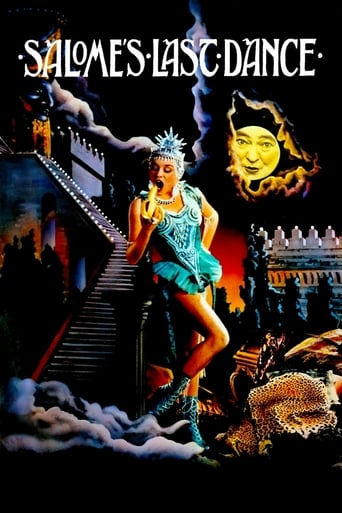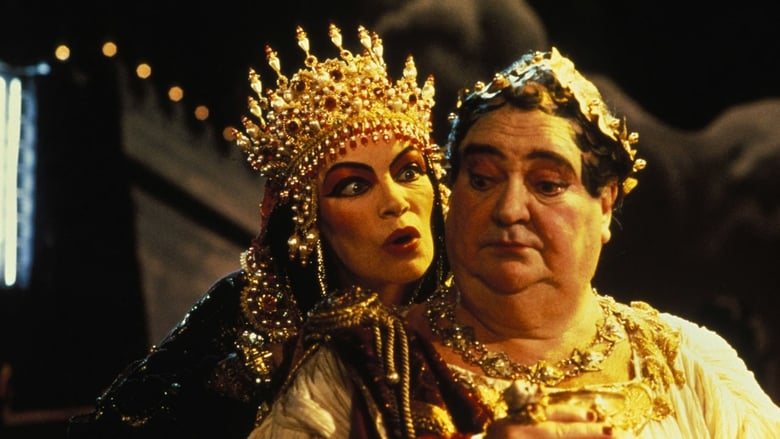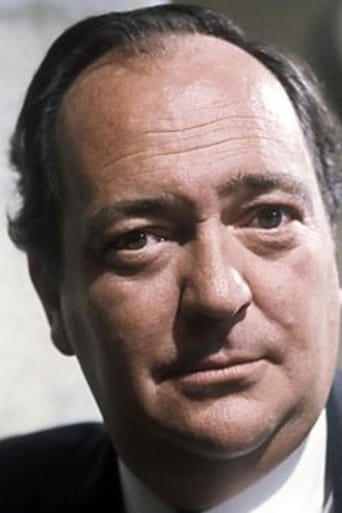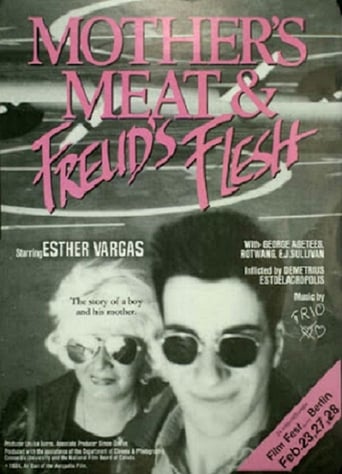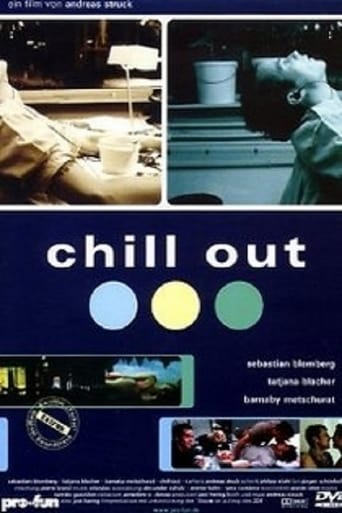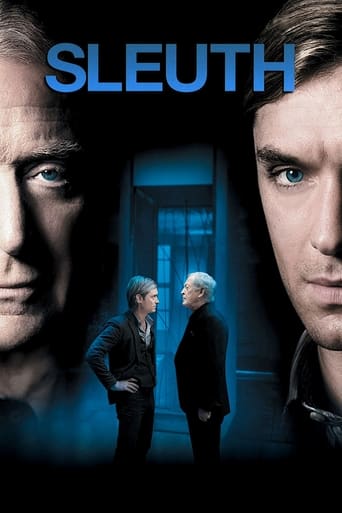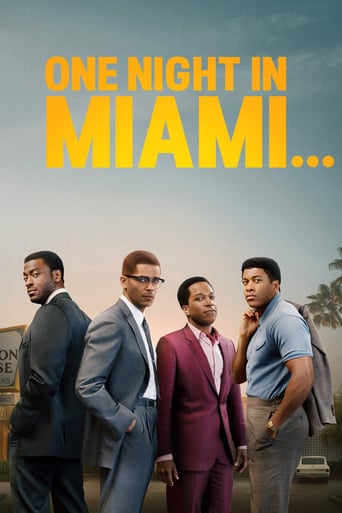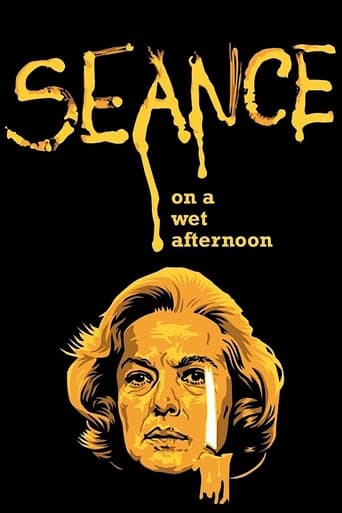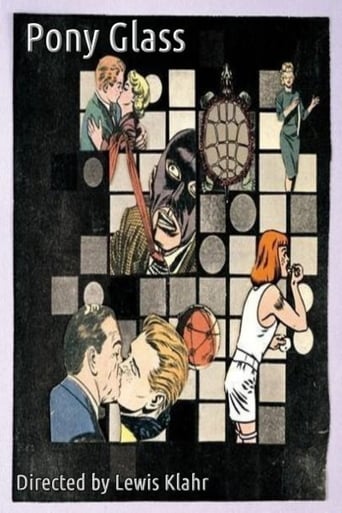Salome's Last Dance (1988)
London, England, November 5th, 1892, Guy Fawkes Night. The famous playwright Oscar Wilde and his lover Lord Alfred Douglas discreetly go to a luxury brothel where the owner, Alfred Taylor, has prepared a surprise for the renowned author: a private and very special performance of his play Salome, banned by the authorities, in which Taylor himself and the peculiar inhabitants of the exclusive establishment will participate.
Watch Trailer
Cast
Similar titles
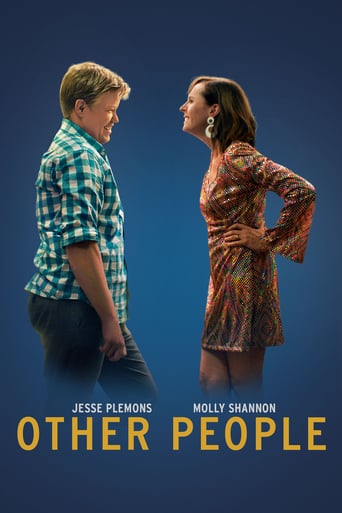

Reviews
Truly Dreadful Film
A Disappointing Continuation
what a terribly boring film. I'm sorry but this is absolutely not deserving of best picture and will be forgotten quickly. Entertaining and engaging cinema? No. Nothing performances with flat faces and mistaking silence for subtlety.
One of the worst ways to make a cult movie is to set out to make a cult movie.
Ken Russell is -- how shall I put this? -- "not to all tastes". He is a talented and distinctive film-maker who has little interest in courting a mainstream audience. "Salome's Last Dance" is clearly targeted for viewers who fancy their entertainment on the decadent side. There are several positive aspects of this movie, but most usefully it contains a performance of Oscar Wilde's play 'Salome'. There is some bookend material at the beginning and the end of this movie, but the main action is Wilde's 'Salome'.MAJOR SPOILERS AHEAD. Basically, 'earnest' male lovers Oscar Wilde and Lord Alfred Douglas visit a London brothel one evening in 1895 for the usual reasons, only for Wilde to be honoured with a surprise performance of his quasi-biblical drama. Afterward, as Wilde and 'Bosie' are leaving -- apparently without having indulged in the brothel's usual transactions -- police arrive to arrest Wilde for his sexual crimes. The actors' performances are mostly excellent, particularly that of Stratford Johns as Herod in the play within the film. (Full disclosure: Johns was a client of mine; I did some publicity work for him in 1978 when he was Daddy Warbucks in 'Annie' at the Victoria Palace.) At the centre of this movie, though, there's a serious casting problem. Before the performance begins, Wilde is introduced to the child actress who will be portraying Salome ... and it's extremely obvious that this short-necked, narrow-hipped 'actress' is in fact a boy. At the climax of the film, when Salome drops her last veil, I was not remotely surprised by what popped out of it. Possibly Ken Russell intended this film for viewers who prefer seeing a boy dressed as a girl, rather than an actual girl ... however, his attempts to frame this as a surprise were utterly a failure. Russell himself appears briefly as a Victorian photographer, lumbered with an elaborate tripod-mounted bellows camera.There is one deeply disgusting moment when John the Baptist spits a gobbet of saliva into Salome's face, and Salome rapturously licks it off. Ugh! However, anyone familiar with Ken Russell's body of work likely expects to be disgusted occasionally.The art direction -- sets, costumes, lighting -- is excellent throughout, although I felt it unlikely that the brothel-keepers would have splashed out so much expense and effort on costumes for a single performance of 'Salome'. And the streets in the exterior shots are too clean.In any story putting historical figures in fictional situations, there are always some factual errors. Unfortunately, Russell commits errors here that are unnecessary. Wilde was arrested in April 1895, but Russell sets these events (including the arrest) on Guy Fawkes Night. I can't see any good reason for this. Guy Fawkes Day is an event that appeals largely to small boys (who beg financial contributions 'for the Guy'), devotees of fireworks, bonfire pyromaniacs and Catholic-bashers. I doubt that the Fifth of November had any special significance for Oscar Wilde.More fatally, there's a whopper of an error in the screenplay. Near the end of this movie, just before the peelers arrive, Oscar Wilde makes a sniggering comment about Sarah Bernhardt's wooden leg. In 1895, mind you. This is trebly an error: #1: Bernhardt's right leg was not amputated until nearly twenty years later (well after Wilde's death). #2: Bernhardt chose not to wear a prosthetic limb: her very few post-amputation performances were mostly done sitting down. And #3: Oscar Wilde publicly worshipped Bernhardt, so it's unlikely that he'd make a joke at her expense. (What is it with gay men and actresses?)I find this bad joke deeply emblematic of Ken Russell: he makes movies about famous people, but he clearly isn't interested in their actual achievements ... he only cares for the celebrity gossip and scandal. To Ken Russell, Sarah Bernhardt's career dwindles into insignificance, and what's really important is the (alleged) fact that she wore a wooden leg. If Ken Russell made a movie about Vincent van Gogh, Russell would ignore van Gogh's artwork and fixate on van Gogh slicing his ear off. (Actually, van Gogh cut off only a piece of his ear.)"Salome's Last Dance" shows that Ken Russell has mastered the technical aspects of film- making, and that he clearly isn't interested in more conventional subject matter. To call this movie repellent or decadent would be interpreted (among Russell's fans) as paying a compliment. Purely since Russell so fully achieved what he meant to do here, I'll rate this one 8 out of 10.
Oscar Wilde's play "Salome" is staged within this movie as Wilde himself looks on from a couch in a male brothel. I cannot determine if Wilde's play is a bomb, or whether it is this amateurish production that is such. I have rarely been as irritated by a performance as that of Imogen Millais-Scott in her portrayal of Salome. I was grossly put off by her constant mugging. And after a dozen or so times of her saying, "I want to kiss your mouth, John the Baptist," I felt that if she were to say it again, I would scream. She did, and I did.How Glenda Jackson wound up in this mess is a puzzle. What a waste. Nickolas Grace plays Wilde as a walking and talking epigram machine with no depth. Compare his Wilde with Stephen Fry's in "Wilde" and you will see how paltry Grace's performance is. Douglas Hodge, looking eerily like the late-stage Michael Jackson, plays John the Baptist (in the "Salome" play) with an overwrought energy that gets on your nerves. I felt like cheering when Glenda Jackson said, "Shut him up." If you find flatulence and belching humorous, then parts of this film will entertain you. If not, be warned that that is how desperate things get.The music is a hodgepodge of overworked classical pieces.After the play within the movie ends we see tears coming to Wilde's eyes. I could not figure out if he was thinking, "God, did I actually write that horrible thing," or "That was so bad as to make one cry."I have to give this a star for the sheer spectacle of it - I give it credit for being uniquely imagined. And another star for the dance scene, even though a "body double" was used for the crucial climax.In summary, I quote Glenda Jackson's exhortation to members of the cast, "Shut them up, they bore me."
Oscar Wilde, who wrote the stage play "Salome", was one of the greatest wits of his time, but lived a lifestyle that created continuous controversy in the society in which he lived. Today he is perhaps best known for authorship of "The Ballard of Reading Jail", which was written during one of the times when he was in prison following a direct confrontation with the government of the time. When he wrote "Salome" it was banned for a time by the English stage censorship and, even though it can be a most rewarding performance to watch, stage productions of it are still relatively infrequent. Consequently many people today are more familiar with the bowdlerised opera which was based on the play and was composed by Richard Strauss. The opera has been filmed by at least two major directors, but for the cinematographic enthusiast there is also this very noteworthy film, directed by Ken Russell, which is much more closely based on Wilde's play. In my opinion this film is dramatically far superior to the rather pathetic opera, and is very worth while seeking out by anyone interested. Basically it exploits the psychological tensions which may have existed in King Herod's court, and which could have accounted for the demand by Salome for the head of John the Baptist on a platter; the story that is so baldly reported in the Bible. The scenario of this film is set in a brothel where Oscar Wilde is treated to an illegal birthday performance of his play, acted by friends who include some of the employees of the host establishment. This choice of venue has upset many critics but it is totally irrelevant to the play - it is helpful for a modern viewer to remember that, at the time in which this film is set, Oscar Wilde and his literary friends would meet regularly to present impromptu performances of works they had written, basically as a quality control procedure for the final product they eventually published; and this film simply exploits the practice. It is essentially a film of a play, with the story associated with the presentation of the play added to maintain cinematographic interest. Ken Russell is a controversial director but although the film is not without faults, the overall quality is outstanding, the cast is superb, and there are particularly memorable performances by Glenda Jackson as Queen Herodias and by Imogen Millais-Scott (who shows the capability of looking any age between thirteen and thirty) as Princess Salome. Both the play and the film effectively capture the decadence, which was characteristic of the royal courts of petty despots at this point in history, better than any other works I have seen. It should be a must for anyone who has the opportunity to see it.
I love this film! But, it seems to evoke strong reactions from people. I've recommended it to friends who absolutely hated it. Oh well. Look for the scene where Salome tries to convince John the Baptist to kiss her. "Kiss me with your lips, John the Baptist." It's a beautiful poem and so perfectly done.There's too much to say about this film. I'll just highly recommend it and leave it at that.
